- Level Foundation
- Duration 27 hours
- Course by University of Copenhagen
-
Offered by

About
More than half of world’s population lives in cities while only 5% did so in the 18th century. The rapid urbanisation has resulted in for example inadequate infrastructure, physical inactivity, gentrification, air pollution, and growing numbers of slum dwellers. All factors challenging health and wellbeing of the people living in the cities. In addition, when addressing climate change it has become of paramount importance to look at mitigation and adaptation investments tailored to the urban context. As stated in the Sustainable Development Goal 11 adopted by all United Nations member states in 2015, societies need to be at the forefront in the continuous management and design of urban spaces to secure that cities and human settlements are inclusive, safe, resilient and sustainable. In this course, you will learn about the key determinants of urban health including demography, climate change, air pollution, noise, transport systems, public and blue and green spaces, and policies and investments affecting sense of community and public safety. You will get a historical overview of the major trends in urban planning and meet a range of stakeholders in urban planning who will provide examples of innovative methods and people-centered approaches to create sustainable solutions. Finally, you will be provided with a series of resources to inspire you to help create awareness and action around an idea or sustainable solution in the field of urbanisation and health. The course has been developed (with support from EIT Health) in a partnership between the University of Copenhagen, Universidad Politécnica de Madrid and University of Coimbra. Researchers and stakeholders in urban planning will introduce you to cases from cities in Denmark, Spain, Portugal and many other urban settings across the world. The aim of the course is to further interdisciplinary knowledge on urbanisation and health. We plan for the courses to reach citizens and activists as well planners, practitioners and decision-makers with a professional interest in sustainable urban planning from countries around the world.Modules
Welcome
1
Videos
- Welcome to the course
1.1 Determinants of Urban Health
1
Assignment
- 1.1
1
Videos
- 1.1 Determinants of Urban Health
2
Readings
- 1.1 Mandatory reading and resources
- 1.1 Optional Reading and Resources
1.2 Changing Values of Urban Planning through History
1
Assignment
- 1.2
1
Videos
- 1.2 Changing Values of Urban Planning through History
1
Readings
- 1.2 Optional Reading and Resources
1.3 Air Pollution
1
Assignment
- 1.3
1
Videos
- 1.3 How Air Pollution Impacts Health
2
Readings
- 1.3 Mandatory Reading and Resources
- 1.3 Optional Reading and Resources
1.4 Noise and Sound
1
Assignment
- 1.4
1
Videos
- 1.4 Noise and Sound
1
Readings
- 1.4 Mandatory Reading and Resources
Discussion, Week 1
3
Discussions
- Your experience with air pollution and noise
- Urban planning and policies in your area
- Community- driven initiatives
2.1 Challenges of Global Ageing in an Urbanising World
1
Assignment
- 2.1
1
Videos
- 2.1 Challenges of Global Ageing in an Urbanising World
2
Readings
- 2.1 Mandatory Reading and Resources
- 2.1 Optional Reading and Resources
2.2 How Place Affects Ageing
1
Assignment
- 2.2
1
Videos
- 2.2 How place affects ageing
2
Readings
- 2.2 Mandatory Reading and Resources
- 2.2 Optional Reading and Resources
2.3 Gentrification and Health
1
Assignment
- 2.3
1
Videos
- 2.3 Gentrification and Health
2
Readings
- 2.3 Mandatory Reading and Resources
- 2.3 Optional Reading and Resources
Discussion: Week 2
2
Discussions
- Assess your neigborhood using the Place Standart Tool guide
- Issues related to gentrification or displacement
3.1 How Blue and Green Infrastructure Promote Human Health
1
Assignment
- 3.1
1
Videos
- 3.1 How Blue and Green Infrastructure Promote Human Health
2
Readings
- 3.1 Mandatory Reading and Resources
- 3.1 Optional Reading and Resources
3.2 Climate Change and Health
1
Assignment
- 3.2
1
Videos
- 3.2 Climate Change and Health
2
Readings
- 3.2 Mandatory Reading and Resources
- 3.2 Optional Reading and Resources
3.3 Urban Farming
1
Assignment
- 3.3
1
Videos
- 3.3 Urban Farming
2
Readings
- 3.3 Mandatory Reading and Resources
- 3.3 Optional Reading and Resources
3.4 Physical Activity in an Urban Environment
1
Assignment
- 3.4
1
Videos
- 3.4 Physical Activity in an Urban Environment
1
Readings
- 3.4 Mandatory Reading and Resources
Discussion: Week 3
2
Discussions
- Fresh and healthy foods
- Your daily commute
4.1 Meeting the SDGs through Urban Planning and Design
1
Assignment
- 4.1
1
Videos
- 4.1 Meeting the Sustainable Development Goals through Urban Planning and Design
2
Readings
- 4.1 Mandatory Reading and Resources
- 4.1 Optional Reading and Resources
4.2 Assessing the Impacts of Urban and Transport Planning on Health
1
Assignment
- 4.2
1
Videos
- 4.2 Assessing the Impacts of Urban and Transport Planning on Health
1
Readings
- 4.2 Mandatory Reading and Resources
4.3 Bending the Curve of Urban Diabetes
1
Assignment
- 4.3
1
Videos
- 4.3 Bending the Curve of Urban Diabetes
2
Readings
- 4.3 Mandatory Reading and Resources
- 4.3 Optional Reading and Resources
Discussion: Week 4
1
Discussions
- Introduce the problem you will address
Innovation and Communication
1
Discussions
- Health must be the number one priority for urban planners
3
Videos
- 5.1Innovation in Health: Three Approaches to Start your Innovation
- 5.2 Building a Great Story
- 5.3 Visualise Data to Support your Case
1
Readings
- Mandatory Reading and Resources
Auto Summary
"Urbanisation and Health - Promoting Sustainable Solutions" is a foundational course in the Health & Fitness domain, led by experts from the University of Copenhagen, Universidad Politécnica de Madrid, and the University of Coimbra. Spanning 1620 minutes, this course addresses the impact of rapid urbanisation on health, exploring key determinants like climate change, air pollution, and public safety. Ideal for citizens, activists, planners, and decision-makers, it offers innovative, people-centered approaches to sustainable urban planning. Available on Coursera with a starter subscription, it aims to inspire action and create awareness around sustainable urban solutions.
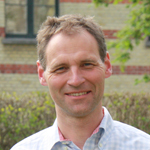
Flemming Konradsen

Elisa Pozo Menéndez
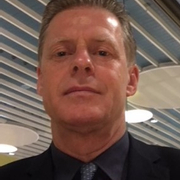
Dirk Lund Christensen
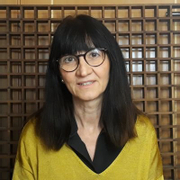
Ester Higueras

Gertrud Jorgensen

Tom Cole-Hunter
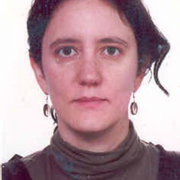
Cristina Gallego Gamazo
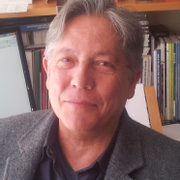
Carlos Verdaguer
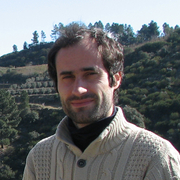
Miguel Padeiro
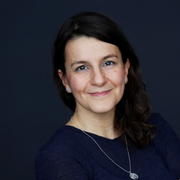
Zorana Jovanovic Andersen
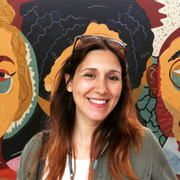
Angela Freitas
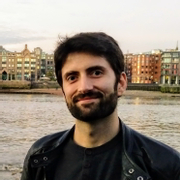
Miguel Núñez
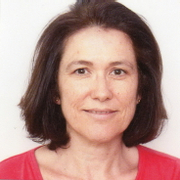
Maria Cristina Garcia Gonzalez

